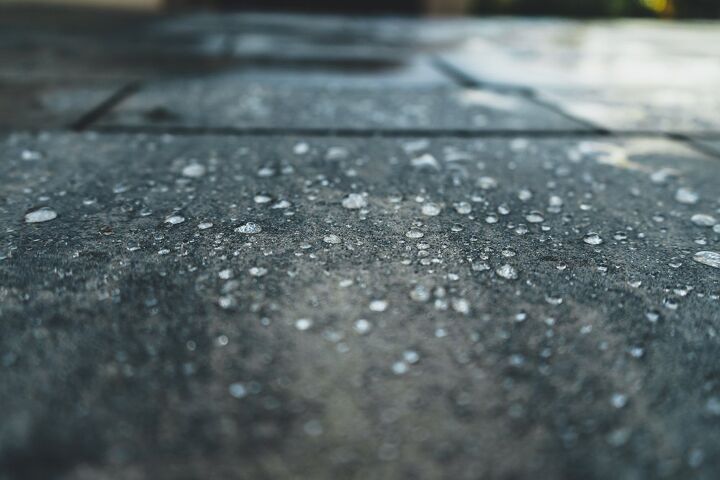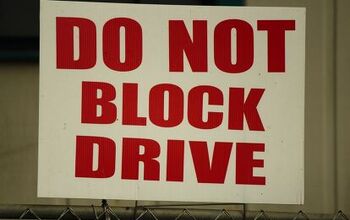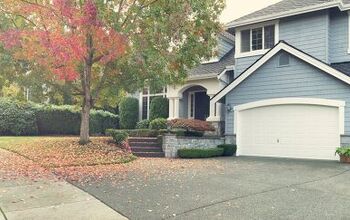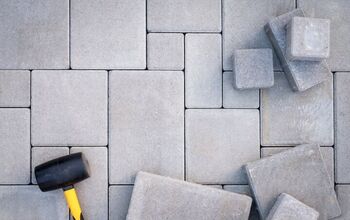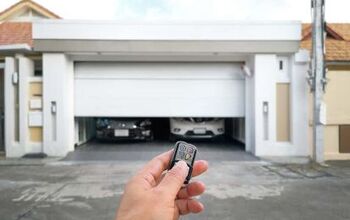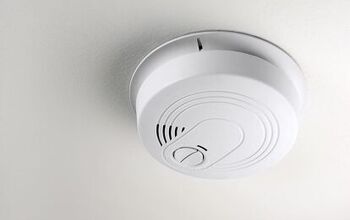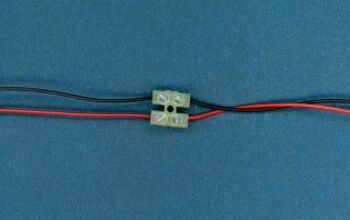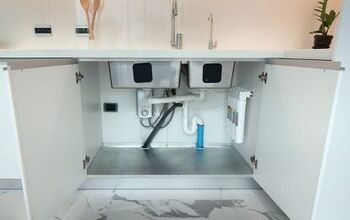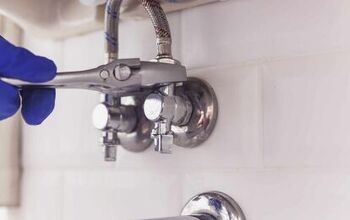Can You Pave A Driveway In The Rain? (Find Out Now!)

No matter how well you plan for your new driveway, Mother Nature always has her own ideas about how the project unfolds. The weather forecast calls for sunny skies, but just as you finish the work, storm clouds fill the horizon. Before you give up the last shimmer of hope, you wonder – is rain bad for a newly paved driveway?
It depends. You shouldn’t pave a driveway with asphalt in the rain. Any amount of water that sits on the surface of asphalt breaks down the oils. The asphalt breaks down prematurely, and you end up with a crumbling driveway filled with cracks and holes. You can, though, pour a concrete driveway in the rain.
Let’s take a closer look at how rain affects fresh asphalt and concrete driveways. We’ll also discuss steps to take if the weather goes awry.
Do You Need Asphalt Paving Services?
Get free, zero-commitment quotes from pro contractors near you.

Can You Pave a Driveway in the Rain?
Ideally, you shouldn’t pave a driveway in the rain. If storms start showing up on the horizon, things get a bit more complicated. If you are using concrete, you can finish paving your driveway in the rain.
Asphalt is another story. It contains quite a bit of oil, and oil and water do not mix under any circumstances. Rain and other types of moisture bring the oil to the surface of the asphalt. As the oil content in the asphalt decreases due to leeching, the quality of the asphalt declines. If you pave a driveway with asphalt in the rain, the surface develops holes and cracks. The asphalt will also crumble due to the low oil content.
Soil Erosion
Soil erosion is another consideration for paving a driveway in the rain. Concrete and asphalt need solid, level soil foundations. Rainwater runoff creates channels in the soil, and damages the foundation for your driveway.
What Happens If It Rains After Paving a Driveway?
So, what if you complete your driveway, and it rains? With concrete, this is not much of an issue. Concrete does not dry. It cures. This is a chemical process rather than a physical process. Rain on a freshly poured concrete driveway only slows the curing process, but it doesn’t destroy the driveway. If it rains within 24 hours of laying an asphalt driveway, you’ll have problems down the road.
Rain and a Fresh Asphalt Driveway
Most asphalt is made from natural petroleum byproducts or petroleum deposits in the Earth. Most people understand asphalt to be the material that is used to pave roads. In actuality, asphalt is the dark, sticky binder that holds together a mixture of crushed rock and gravel.
Like other petroleum products, asphalt contains a good amount of oil. Oil and water do not mix. When rain falls on an asphalt driveway, it soaks into the material. The water forces oil out of the asphalt. Without an adequate oil content, the asphalt dries out. You are left with holes, cracks, and small, crumbled piles of gravel and crushed rock.
How Long Does Asphalt Need to Dry Before It Rains?
At a minimum, asphalt should dry for at least 24 hours before it rains. Ideally, asphalt needs 2 to 3 days to dry before being exposed to moisture.
What to Do If It Rains After Laying Asphalt
When it rains after laying an asphalt driveway is to remove as much water from the surface as possible. Use a broom or floor squeegee. Be sure to not damage the surface of the asphalt.
How to Protect Asphalt from Rain
If it rains shortly after you lay down asphalt for your driveway, cover the entire area with tarps or plastic sheeting. This minimizes the amount of rain on the surface. Sweep or squeegee the asphalt once it stops raining.
For a long-term solution, have the asphalt seal coated after 2 to 3 months. The seal coating works as a barrier to moisture.
Rain and a Fresh Concrete Driveway
The durability of concrete is one of the reasons why it is preferred over asphalt for driveways. You can pave a driveway with concrete in the rain, and the material stands up well to moisture.
Unlike asphalt that dries, concrete cures. A chemical process takes place within the concrete rather than a physical process. A concrete driveway needs about 28 days to cure, but it stands up to rain in the meantime. In fact, you can even pour concrete underwater.
How Long Does Concrete Need to Dry Before It Rains?
Concrete doesn’t need to dry at all before it rains. The only difference may be that the concrete takes longer to cure. There is an exception, though. A heavy downpour may create indentations in the surface of the concrete and wash away some of the cement.
What to Do If It Rains After Pouring Concrete
If it rains after your pour a concrete driveway, the first thing to do is check the surface. Look for indentations and places where the crushed rock is exposed. You may also find some channels in the concrete. Once the weather clears, let the surface of the cement dry a bit, and use a slurry of cement and water to fill in any flaws.
How to Protect Concrete from Rain
A short-term solution for protecting a fresh concrete driveway from the rain is to cover it with tarps or plastic sheeting. Elevate the covering a few inches above the surface of the concrete.
After the concrete cures for about 28 days, apply a penetrating concrete sealer. This prevents moisture from penetrating your cement driveway.
Rain After Sealing a Concrete Driveway
Penetrating sealers for concrete driveways are typically dry to the touch within 30 to 60 minutes. The sealer needs to stay dry for at least 36 hours and, ideally, for 72 hours.
Related Questions
How do you fix an uneven surface on concrete?
Sand the concrete with diamond sandpaper and an orbital sander. You can also use an angled grinder.
Do You Need Asphalt Paving Services?
Get free, zero-commitment quotes from pro contractors near you.

Summary
You can’t pave a driveway with asphalt while it is raining. It is best to postpone the job. Asphalt needs to dry at least 24 hours before it rains. Ideally, your asphalt driveway should dry 2 to 3 days before getting wet.
You can pave a driveway with concrete in the rain. The only risk is that there may be some damage to the surface of the driveway. Fill in channels and indentations with a slurry of cement and water.

Jennifer L. Eggerton loves being hands-on, whether it's with a home DIY project, making repairs, re-decorating a room, or keeping life organized. She enjoys helping people by sharing her knowledge, insights, and experiences, as well as her lessons learned. In addition to her work as a writer, Jennifer is a Jeep® overlander, self-published author, and nature photographer who loves being outdoors.
More by Jennifer Eggerton



